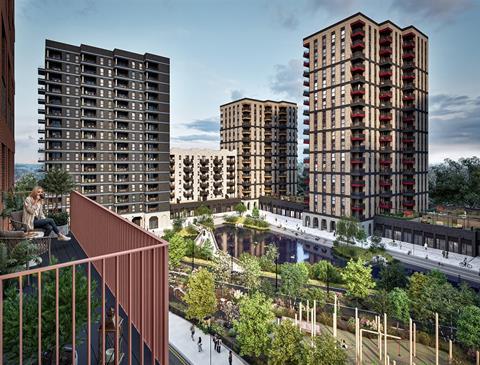Peabody’s pivot to spending more on improving existing homes continues with new, local approach to services
Peabody started work on 302 new homes in 2024/2025, it has revealed in an unaudited trading update.

The figure is down 74% on the 1,157 starts reported for the same period the previous year. The group’s completions also dropped from 1,381 to 1,157. This means development output has more than halved since the 2,399 completions reported by the housing association giant in 2022/23.
Peabody in the update said it is “continuing to do what we can to tackle the affordable housing supply challenges in London and the South-East.”
It added: “But we also have continued to carefully manage our development programme, maintaining an appropriate level of commitment when faced with a challenging financial environment.”
In the last couple of years the 108,000-home landlord has pivoted to investing more in improving existing homes, in a move it has previously described as “getting the basics right”.
It said it spent £430m in improving existing stock in 2024/25, up from £371m the previous year. The £430m included £231m of capital expenditure, with £157m invested in improvements and cyclical work and £44m spent on building safety works as it continues to remediate its high-rise blocks. The group spent £30m on energy efficiency measures, bringing around 80% of homes up to EPC C or higher.
It invested £199m in maintenance and responsive repairs, including setting up new local repairs teams.
The London landlord also revealed its turnover has broken the £1bn barrier, increasing by 4.7% from £989m to £1.04bn, this included a £31million increase in income from social housing lettings.
The group’s market sale and first tranche shared ownership sales income fell from £104m to £130m with its margin dropping from 11.5% to 10.2%. It said it achieved a surplus from disposals and staircasing of £75m. It said staircasing benefited from a targeted marketing campaign.
Peabody said its overall operating surplus excluding one-off items will be around £220m, down on £244m last year.
Ian McDermott, chief executive of Peabody said: “While we started fewer new homes this year, we’re acutely aware of the overcrowding and homelessness challenges in London. We want to do what we can to support the delivery of new homes and regeneration in and around the capital. We welcome the measures announced in the spending review which show strong backing and support for the sector from government”
Peabody reported EBITDA MRI interest cover of 44% last year, meaning it was a long way short of being able to cover interest costs from its earnings. No figure was provided for 2024/25 in the latest update.
McDermott told Building’s sister title Housing Today last week that this means Peabody, in common with several other G15 landlords, needs to rebuild its capacity before it can ‘lean’ into development. The G15 is hoping the “£2.5bn in low-cost loans for social housing providers” announced in the spending review can help by reducing the need for up front commercial lending to fund developments.
Peabody said its half year Tenant Satisfaction Measures results are 1% higher “across a range of areas” year-on-year.
McDermott said: “This has been another year of improvement and higher investment to support our top priority of looking after residents’ homes. We’re seeing positive change, but we know there is much more to do. We’re focused on delivering better services for residents, being better together for colleagues, and providing better homes and places for the long-term.
“Over the next three years, residents will see our services become more reliable - with fewer issues, quicker fixes, and clearer communication. We’ll equip our teams with better tools and training, simplify how we work and embed a local approach throughout the organisation.”
Peabody also announced in March it has combined its development and property services teams into one department, led by Phil Jenkins, in a bid to improve services.


























No comments yet